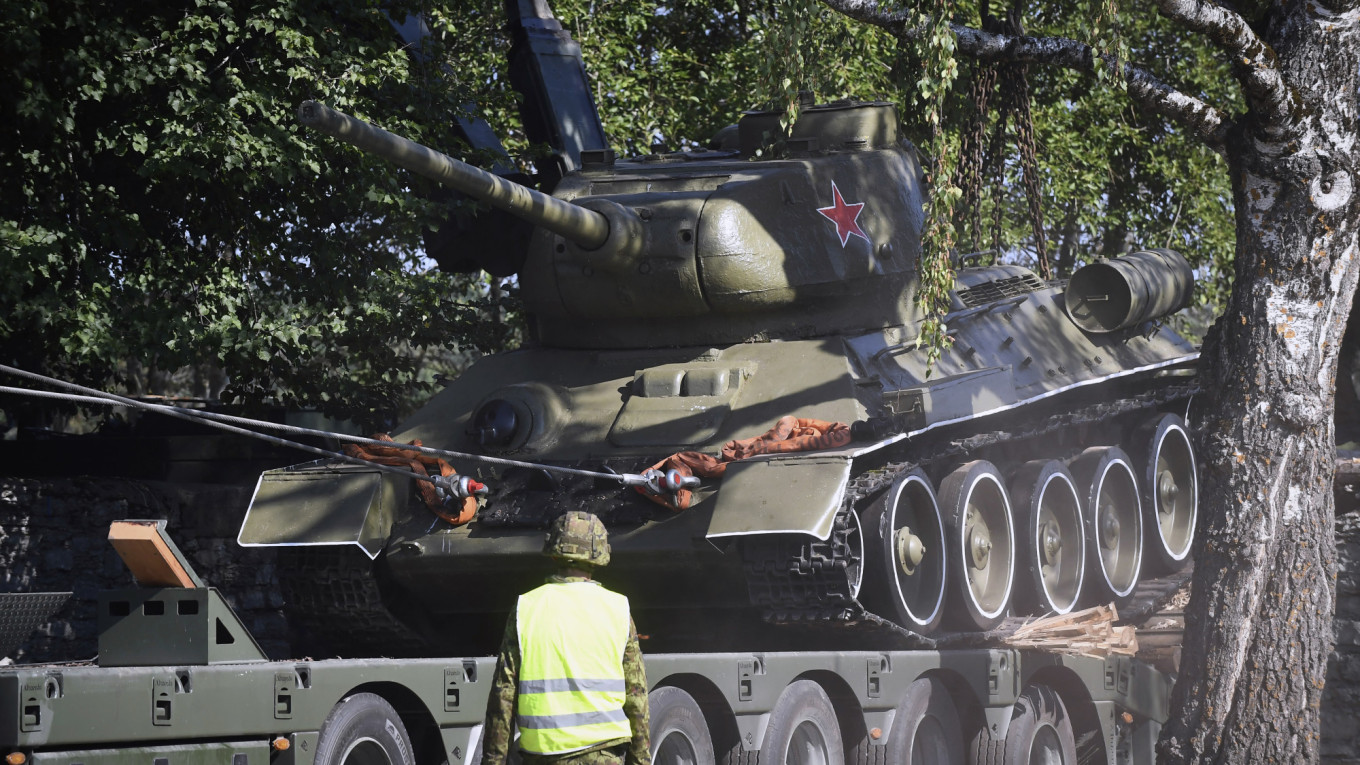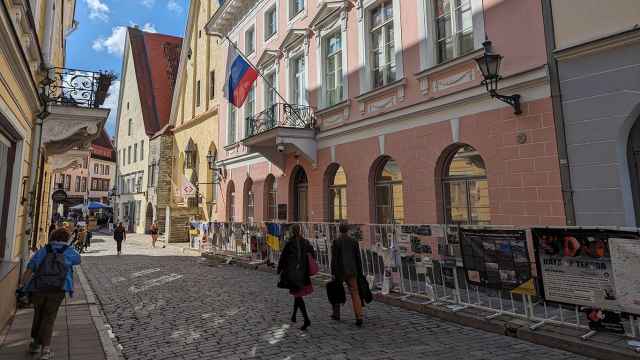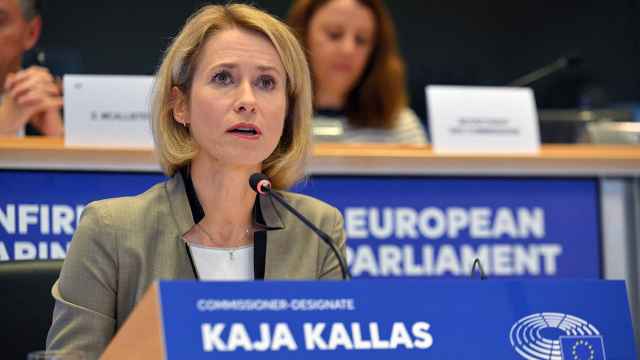Estonia on Tuesday removed a Soviet-era World War II memorial from Narva — a city with a large Russian-speaking minority — accusing Russia of using such monuments to stir up tensions.
Prime Minister Kaja Kallas said in a statement that the move was a response to "increasing tensions and confusion around memorials in Narva."
"We must act quickly to ensure public order and internal security," she said.
Local opposition to removing the monument had sparked fears of a repetition of the rioting that broke out in Tallinn in 2007 due to the removal of a Soviet monument.
A World War II era T-34 tank that formed part of the memorial in Narva will be taken to the Estonian War Museum and a mass grave of wartime victims will instead be given a "neutral grave marker."
Narva's mayor Katri Raik had previously refused to hand the tank over to the museum.
The memorial is a focus for annual Victory Day commemoration ceremonies in the city and Narva city council had failed to reach a decision about the removal of the monument despite a government order to do so before the end of the year.
Foreign Minister Urmas Reinsalu said Russia was trying to exploit "internal divisions" in Estonia.
Kallas said: "We will not afford Russia the opportunity to use the past to disturb the peace."
Interior Minister Lauri Laanamets said it was "in the interests of public order and internal security to remove the monuments in question before a further increase in tensions around them."
The Baltic states of Estonia and Latvia both have large Russian-speaking minorities that are sometimes at odds with the national governments.
There have been concerns that Moscow could seek to exploit these differences in order to destabilise the countries, which are both EU and NATO members.
A Message from The Moscow Times:
Dear readers,
We are facing unprecedented challenges. Russia's Prosecutor General's Office has designated The Moscow Times as an "undesirable" organization, criminalizing our work and putting our staff at risk of prosecution. This follows our earlier unjust labeling as a "foreign agent."
These actions are direct attempts to silence independent journalism in Russia. The authorities claim our work "discredits the decisions of the Russian leadership." We see things differently: we strive to provide accurate, unbiased reporting on Russia.
We, the journalists of The Moscow Times, refuse to be silenced. But to continue our work, we need your help.
Your support, no matter how small, makes a world of difference. If you can, please support us monthly starting from just $2. It's quick to set up, and every contribution makes a significant impact.
By supporting The Moscow Times, you're defending open, independent journalism in the face of repression. Thank you for standing with us.
Remind me later.






